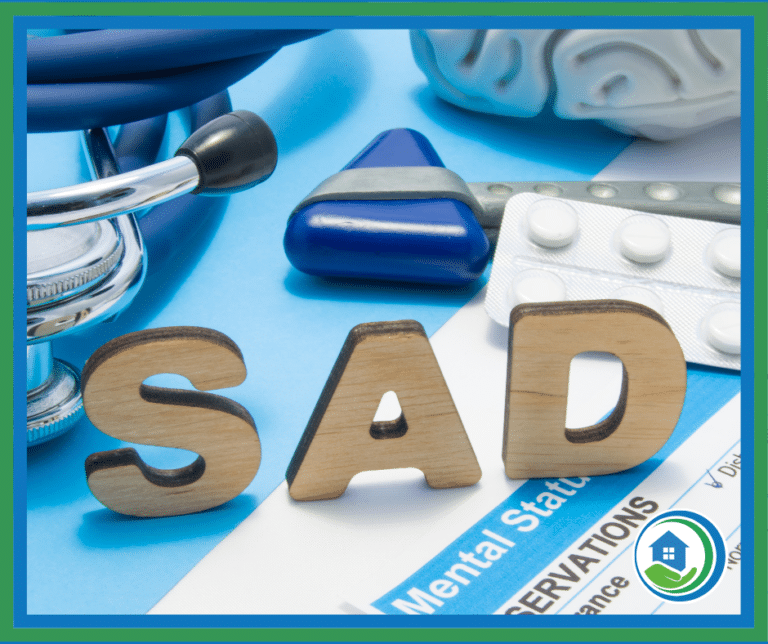Seasonal Affective Disorder, also called SAD, is a much more common issue in the colder months of the year. SAD can be a problem during summer, too, but the majority of people who suffer from it are affected by the longer, darker days during the winter. Some of the solutions for SAD, like bringing in companion care at home, are easier to implement than seniors might think.
Mood and Energy Changes
One of the earliest signs of SAD can be changes in energy and mood. Seniors might start to experience persistent feelings of sadness or they might feel lethargic and tired, even after sleeping several hours in a row. These symptoms are a hallmark of depression in general, but they’re connected with SAD, too.
Trouble Sleeping
Seniors with SAD may start to have more trouble sleeping or experience disrupted sleep patterns. That might involve insomnia, but it can also include sleeping way more than usual. Any big changes in a senior’s sleep habits can be a cause for concern and merit talking with a doctor.
Appetite Changes or Weight Differences
Sometimes seniors with SAD find that they experience unintentional weight changes. They may also experience appetite changes that seem to appear out of the blue. Companion care at home providers can help out by preparing healthy meals and offering them on a regular schedule. This can keep seniors on target with their health and nutritional goals.
Social Isolation
When seniors are feeling depressed and upset, they’re more likely to withdraw from social interactions. Likewise, the winter months often make it more difficult for aging adults to have the social engagement they are used to having the rest of the year. Companion care at home comes to them, helping them to have positive social interactions regularly.
Trouble Concentrating or Making Decisions
Cognitive health is closely tied to emotional well-being, so when seniors are starting to become affected by SAD they may also start to experience cognitive changes. They may have more trouble with memory, along with trouble concentrating or making decisions. This can be frustrating and may cause seniors to worry about whether they’re experiencing bigger health issues like dementia or Alzheimer’s disease.
Physical Ailments
Many people don’t realize that physical ailments and pain can be related to psychological health. Seniors experiencing SAD might get headaches more frequently, for instance, or they might feel an uptick in chronic pain that is normally manageable. They may also have other ailments that are difficult to explain, like a stomachache or just generally feeling ill.
Lack of Interest in Activities
As with other types of depression, seniors with SAD may not be interested in activities they normally love. This can cause them to avoid those once-enjoyable activities, withdrawing emotionally. The irony is that engaging in hobbies and favorite activities can sometimes alleviate bad moods and bring a lot of joy and fulfillment.
Companion care at home can offer the support that seniors need to get through the difficulties that Seasonal Affective Disorder can bring. They’re able to offer friendly social engagement as well as hands-on support that makes life easier.
If you or an aging loved one are considering Companion Care at Home in Tye, TX, please contact the caring staff at Clear Path Home Care today at (325) 244-0877
Clear Path Home Care provides compassionate, high-quality home care in Childress County, Cottle County, King County, Stonewall County, Fisher County, Nolan County, Hardeman County, Foard County, Knox County, Haskell County, Jones County, and Taylor County in Texas.
- Helping Seniors Become Comfortable With Telemedicine - May 14, 2024
- How Seniors Can Bounce Back From Life Events - May 2, 2024
- What You Need to Know About Hospital to Home Transition Care - April 18, 2024






